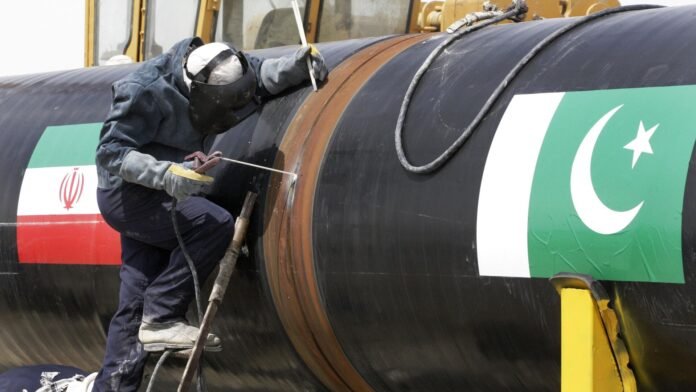Pakistan is set to embark on a significant infrastructure project aimed at addressing its energy needs by building a pipeline to import natural gas from Iran. The decision comes amidst Pakistan’s ongoing efforts to diversify its energy sources and reduce its reliance on costly imported fuels.
The pipeline project, which is expected to span several hundred kilometers, will facilitate the transportation of natural gas from Iran’s rich gas fields to various regions of Pakistan. This move is part of Pakistan’s broader strategy to enhance its energy security and meet the growing demand for natural gas, particularly in the industrial and residential sectors.
Pakistan’s decision to pursue the pipeline project with Iran underscores the importance of fostering strong bilateral relations and economic cooperation between the two neighboring countries. The pipeline will not only bolster Pakistan’s energy infrastructure but also strengthen its ties with Iran, a key regional ally.
The construction of the pipeline is expected to create numerous job opportunities and stimulate economic growth in the areas along its route. Additionally, the availability of reliable and affordable natural gas is poised to drive industrial development and improve the living standards of millions of Pakistanis.
Despite facing logistical and geopolitical challenges, Pakistan remains committed to advancing the pipeline project in collaboration with Iran. The project is a testament to Pakistan’s determination to overcome energy shortages and ensure a sustainable and prosperous future for its citizens.
The pipeline project is also viewed as a strategic move to enhance Pakistan’s energy independence and reduce its vulnerability to supply disruptions and price fluctuations in the global energy market. By tapping into Iran’s vast natural gas reserves, Pakistan aims to achieve greater energy self-sufficiency and resilience in the face of external pressures.
The pipeline project has drawn praise from various quarters, with experts lauding it as a crucial step towards addressing Pakistan’s long-standing energy challenges. They emphasize the importance of implementing the project efficiently and transparently to maximize its benefits for the Pakistani economy and society.
However, the pipeline project also faces scrutiny and skepticism from some quarters, particularly in light of geopolitical tensions and concerns about international sanctions on Iran. Critics warn of potential risks and complications associated with the project, including political instability, security threats, and legal hurdles.
Pakistan’s decision to build a pipeline to import natural gas from Iran comes at a critical juncture for the country’s energy sector. Pakistan has long grappled with chronic energy shortages, which have hindered economic growth and undermined the country’s development efforts. The reliance on imported fuels, such as oil and liquefied natural gas (LNG), has also strained Pakistan’s foreign exchange reserves and contributed to its trade deficit.
By diversifying its energy sources and tapping into Iran’s vast natural gas reserves, Pakistan aims to alleviate its energy woes and achieve greater energy security. Natural gas is a cleaner and more environmentally friendly alternative to other fossil fuels, making it an attractive option for meeting Pakistan’s growing energy needs while reducing carbon emissions.
The pipeline project with Iran is expected to play a crucial role in meeting Pakistan’s energy requirements, particularly in the power generation, industrial, and household sectors. Access to reliable and affordable natural gas will not only help bridge the supply-demand gap but also lower the cost of energy production, thereby boosting competitiveness and productivity across various industries.
Furthermore, the pipeline project is aligned with Pakistan’s broader energy transition goals, which prioritize the development of renewable energy sources, such as solar and wind power, alongside traditional fossil fuels. By integrating natural gas into its energy mix, Pakistan can achieve a more balanced and sustainable energy portfolio that enhances energy security, mitigates environmental impact, and fosters economic growth.
The pipeline project also holds geopolitical significance, as it strengthens Pakistan’s ties with Iran and reinforces regional cooperation in the energy sector. Closer energy cooperation between Pakistan and Iran has the potential to enhance stability and prosperity in the region while reducing reliance on external energy suppliers.
However, the pipeline project faces several challenges, including financing constraints, security risks, and regulatory hurdles. Pakistan will need to secure adequate funding and investment for the project, navigate complex geopolitical dynamics, and address technical and legal issues to ensure its successful implementation.
Despite these challenges, the pipeline project represents a significant opportunity for Pakistan to address its energy needs, strengthen bilateral relations with Iran, and advance its broader development objectives. With strategic planning, effective governance, and international support, Pakistan can unlock the full potential of the pipeline project and pave the way for a more sustainable and prosperous future.

